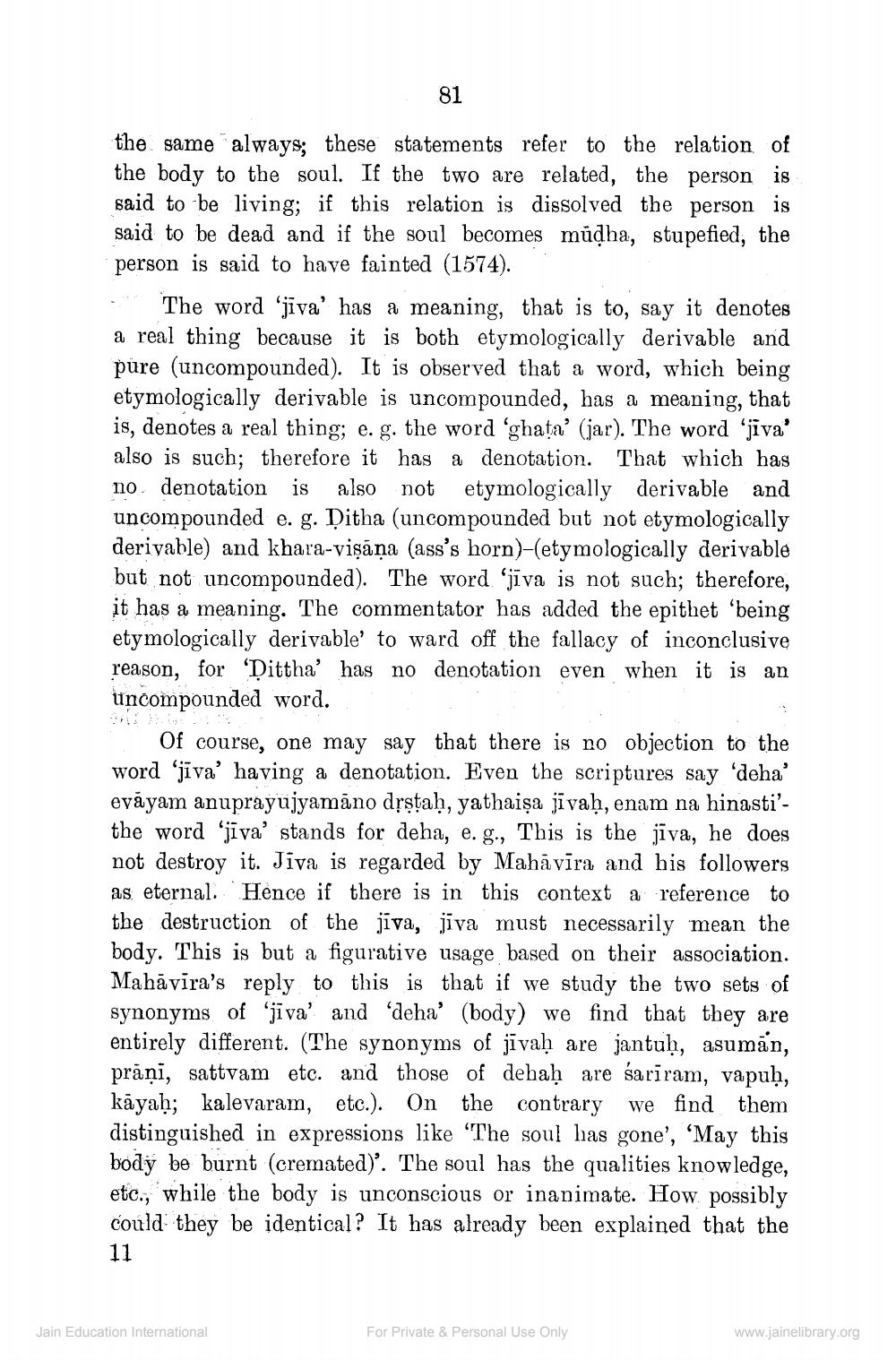________________
81
the same always; these statements refer to the relation of the body to the soul. If the two are related, the person is said to be living; if this relation is dissolved the person is said to be dead and if the soul becomes müdha, stupefied, the person is said to have fainted (1574).
The word 'jīva' has a meaning, that is to say it denotes a real thing because it is both etymologically derivable and pure (uncompounded). It is observed that a word, which being etymologically derivable is uncompounded, has a meaning, that is, denotes a real thing; e. g. the word 'ghata' (jar). The word 'jiva' also is such; therefore it has a denotation. That which has no denotation is also not etymologically derivable and uncompounded e. g. Ditha (uncompounded but not etymologically derivable) and khara-vişāņa (ass's horn)-(etymologically derivable but not uncompounded). The word 'jīva is not such; therefore, it has a meaning. The commentator has added the epithet 'being etymologically derivable' to ward off the fallacy of inconclusive reason, for 'Dittha' has no denotation even when it is an uncompounded word.
Of course, one may say that there is no objection to the word 'jīva' having a denotation. Even the scriptures say 'deha' eyāyam anuprayujyamāno dịstaḥ, yathaișa jīvaḥ, enam na hinasti'the word 'jīva' stands for deha, e.g., This is the jīva, he does not destroy it. Jīva is regarded by Mahāvīra and his followers as eternal. Hence if there is in this context a reference to the destruction of the jīva, jīva must necessarily mean the body. This is but a figurative usage based on their association. Mahāvīra's reply to this is that if we study the two sets of synonyms of 'jīva' and 'deha' (body) we find that they are entirely different. (The synonyms of jīvaḥ are jantuh, asumán, prāņi, sattvam etc. and those of dehaḥ are śarīram, vapuh, kāyaḥ; kalevaram, etc.). On the contrary we find them distinguished in expressions like "The soul has gone', ‘May this body be burnt (cremated)'. The soul has the qualities knowledge, etc., while the body is unconscious or inanimate. How possibly could they be identical? It has already been explained that the 11
Jain Education International
For Private & Personal Use Only
www.jainelibrary.org




